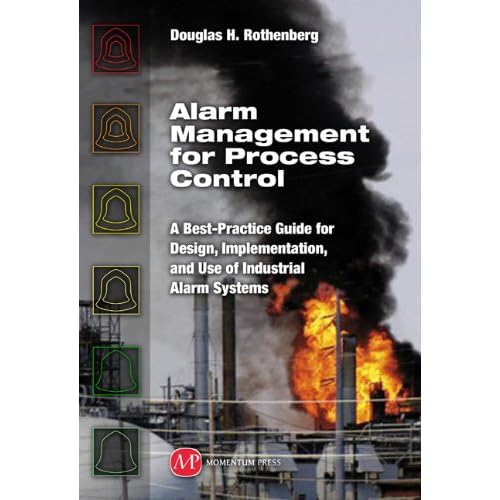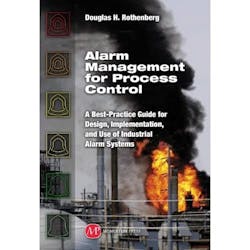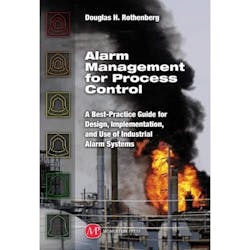This
book, Alarm Management for Process Control, by Doug Rothenberg, who is one of the most significant thinkers about alarm management theory in the world, presents precepts for design of alarm management systems.
Alarms are built into control systems, to tell the operator what is going wrong, or out of spec, in the portion of the plant the operator is responsible for. Sometimes operators can get a couple hundred alarms...an alarm "cascade" that operators simply can't handle, and things get missed. Unless you follow the design precepts Doug discusses, that is.
These precepts, if they'd been followed, would likely have prevented the BP Texas City refinery disaster that killed 16 and destroyed a major complex in the refinery. These precepts would likely have prevented the disaster at the Bayer Crop Science plant in 2008 that killed 2 and nearly caused a methyl iso spill that might have killed thousands (think Bhopal). I could go on but I think you get the point.
Rothenberg's book is a complete and yet very detailed look at a very important part of engineering control systems for use in critical infrastructure protection, as well as just everyday manufacturing in the process industries.
His writing style is enjoyable, and he clearly explains even the most arcane portions of the subject in a way that you can understand-- whether you are an operator, a technician, an engineer or a plant manager.
This is one of the most important engineering texts published this year!
About the Author
waltboyes
waltboyes
Sign up for our eNewsletters
Get the latest news and updates

Leaders relevant to this article:
 book, Alarm Management for Process Control, by Doug Rothenberg, who is one of the most significant thinkers about alarm management theory in the world, presents precepts for design of alarm management systems.
book, Alarm Management for Process Control, by Doug Rothenberg, who is one of the most significant thinkers about alarm management theory in the world, presents precepts for design of alarm management systems. 
